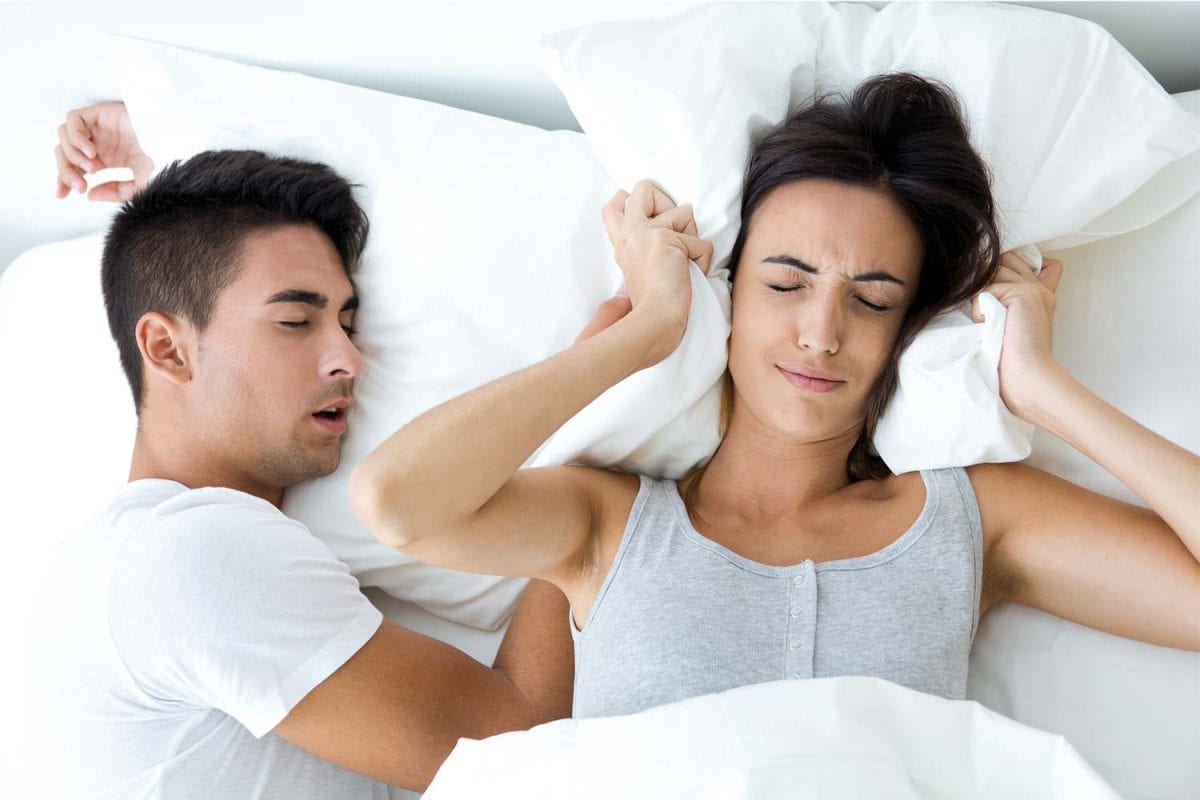There is nothing more appealing than a restful night’s sleep after a taxing day at work. You may, however, end up feeling lethargic and groggy if constant snoring wakes you up several times in the middle of the night. Your partner may have to bear the brunt too leaving him/her unproductive the following morning due to lack of quality shut-eye time. Not only does this affect productivity, it also poses a serious threat to your health. If snoring is keeping you up at night you may want to look for solutions that can help keep it at bay guaranteeing you and your partner undisturbed and peaceful sleep.
Does snoring indicate underlying health issues?
At the surface, snoring may seem like an activity that causes disturbance while sleeping. However, there is more to it than meets the eye. Essentially, snoring is the outcome of an obstruction caused to the air flow from the throat to the nose. The subsequent blocking of this passage causes vibration, which results in a snore. Snoring every night could be a sign of obstructive sleep apnea, which tends to have adverse effects on the functioning of your body.
What can you do to stop the snoring?
1. Use nasal strips when going to bed:
If you find that your nasal passage is blocked due to a cold or flu, you are most likely to snore in your sleep. A silver lining to this type of air blockage is that it’s mostly temporary. Once your allergic conditions subside and the nasal passage is cleared, your snoring too will stop. Nonetheless, it is still essential to keep this passageway clear to let the air pass without any obstruction whatsoever. Nasal strips can work wonders in such a circumstance. Application of a nasal strip to the bridge of the nose widens the nostrils. This increases the surface area for air to pass, thus eliminating the snore.
2. Wear anti-snoring mouthpiece while sleeping:
The position in which you sleep can sometimes have an impact on your snoring. Most commonly, people who sleep on their backs tend to snore a lot louder and more frequently. This generally happens as the base of the tongue falls further back into the throat when you sleep on your back. The airway gets blocked resulting in a vibration that eventually leads to a snore. In such a situation, wearing a mouthpiece, better known as a mandibular advancement device can dramatically help reduce the snoring. The use of this mouthpiece helps bring the jaw a tad forward, which invariably also stops the base of the tongue from falling back into the throat.
3. Apply chin-up strips:
These are a cost-effective and easy way to keep snoring at bay. Chin-up strips are lightweight and have an adhesive material on one side, which you use to stick on your chin. As the name suggests, it helps push your jaw forward and this helps clear out the airway that directs air from the throat to the nose.
4. Sleep with a Tongue Stabilising Device:
If the idea of a mouthpiece pushing your jaw forward sounds unappealing, you could instead use a tongue stabilizing device (TSD) when going to bed. Unlike the mandibular advancement device, the TSD keeps the jaw in its original position. Instead, it helps bring the tongue forward so that it clears the airway entirely.
5. Sleep with an anti-snoring backpack:
The idea of sleeping with a backpack on may seem uncomfortable. However, these backpacks have been designed specifically for this purpose. They help you stay on your sides so that you can experience undisturbed sleep with minimal snoring. You could also use anti-snore pillows that are designed to give added support to your neck so as to keep the airway clear.
6. Wear a mouth guard if you snore with an open mouth:
If the tissues around the soft palate in your throat are weak, it can lead to snoring from the mouth. This can also occur when you breathe through your mouth when sleeping. In such cases, using a mouth guard or a vestibular shield helps you fall back to your nose for breathing. The airway is cleared out and the snoring subsides too.
7. Opt for CPAP Therapy:
If you are suffering from obstructive sleep apnea, the position that you sleep in may have little impact on your snoring. If you face difficulty while breathing at night and experience irregularities, you may want to see your doctor at once. He would most likely recommend a CPAP therapy if sleep apnea is found to be the underlying cause. The breathing mask used in this therapy ensures that this absolutely no hindrance to your breathing while you sleep.
Concluding Remarks
The occasional snoring may not be a cause for concern, however, if you tend to snore persistently then it is best to consult your doctor. Using these devices based on your snoring pattern can dramatically help reduce your snoring and give you a delightful night’s sleep keeping you productive throughout the day. It will also ensure that your partner truly unwinds and relaxes after a hard day at work.








